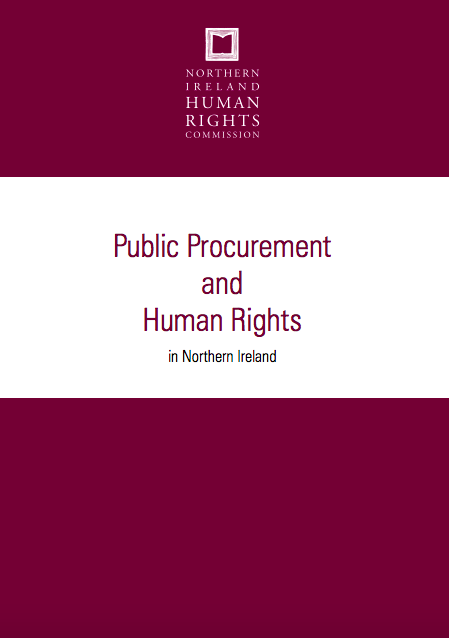This report considers the legal rules, policies and practices of public procurement in Northern Ireland, and evaluates the extent to which these respect human rights. This focus is timely and aims to:
– ensure the engagement by public authorities of private companies whose practices meet human rights
standards;
– reduce the presence of forced labour in Northern Ireland;
– ensure the protection of human rights in the delivery of public services;
– address unequal treatment and harassment in the private as well as public sector in Northern Ireland;
– encourage respect for human rights in the global supply chains of private companies.
Both international and domestic laws applying in Northern Ireland make clear that all public authorities and all businesses must fully respect human rights. It is also clear that this applies to public procurement and publicly procured goods and services.6 Government and private sector companies have responsibilities to ensure that human rights are respected in the conduct of public procurement processes, in the terms of contracts, and performance. The report: sets out the legal rules and principles that govern the conduct of public procurement in Northern Ireland; describes measures taken by public authorities in Northern Ireland to give effect to these rules and principles; evaluates these measures against relevant human rights standards.

